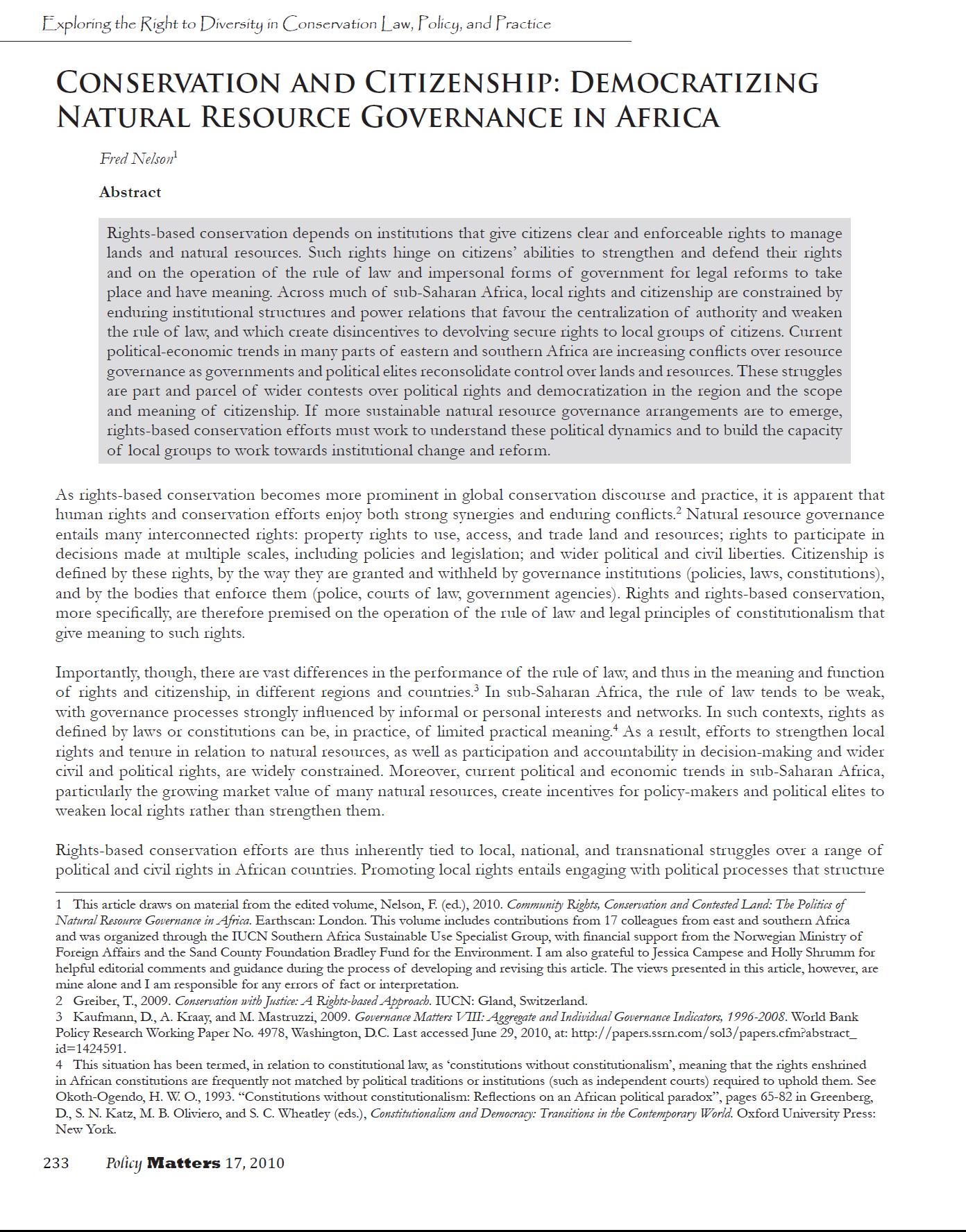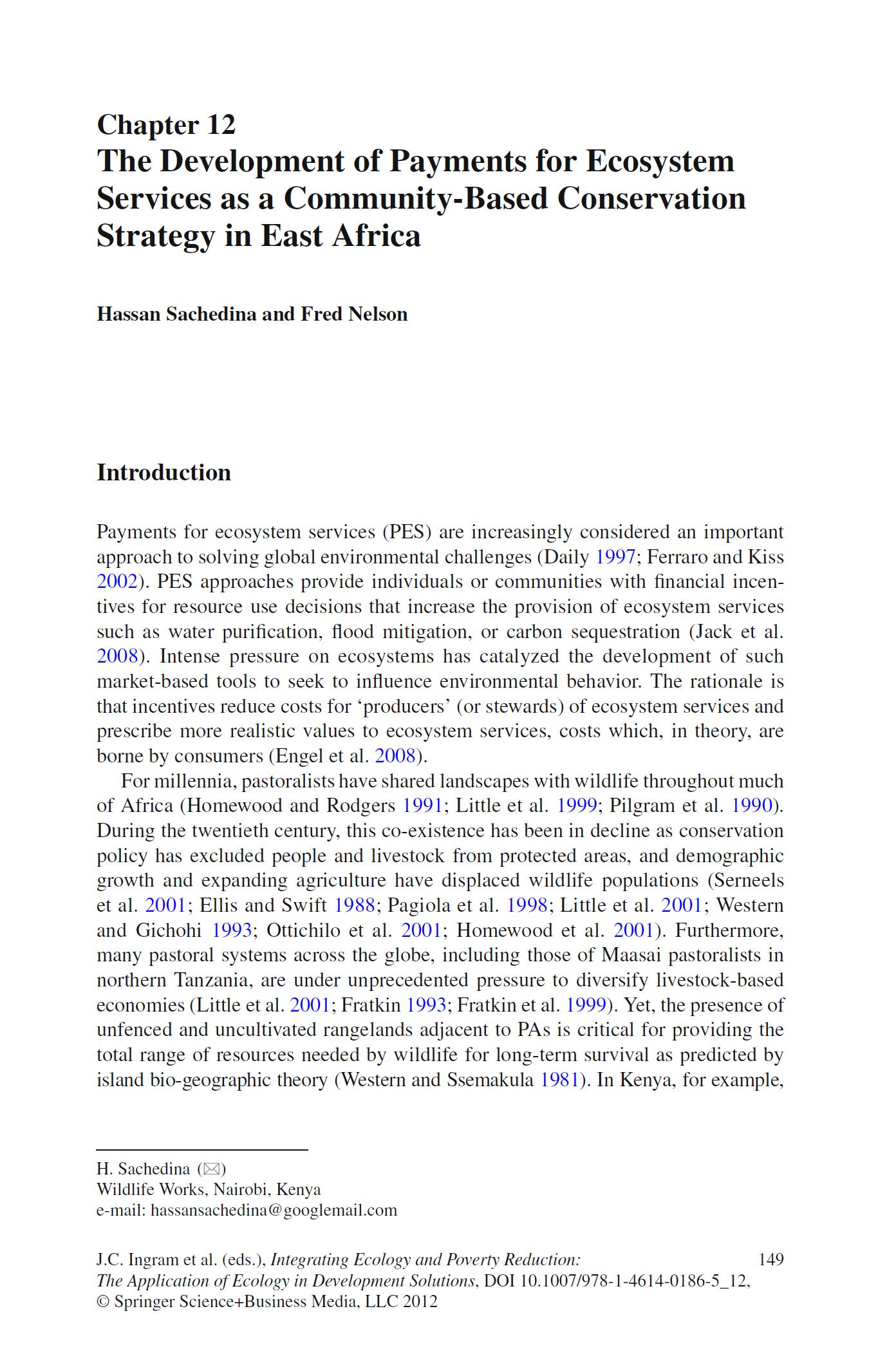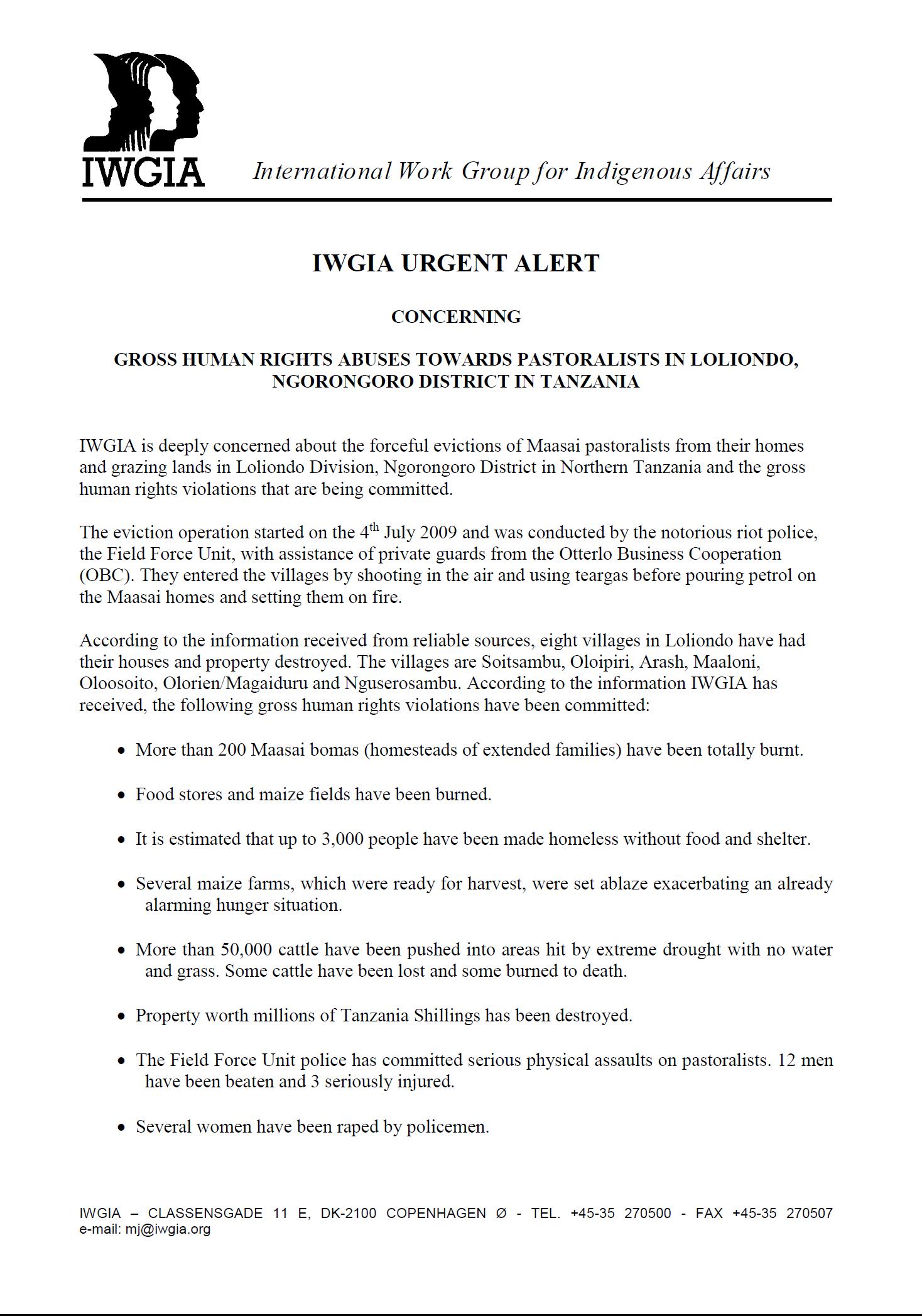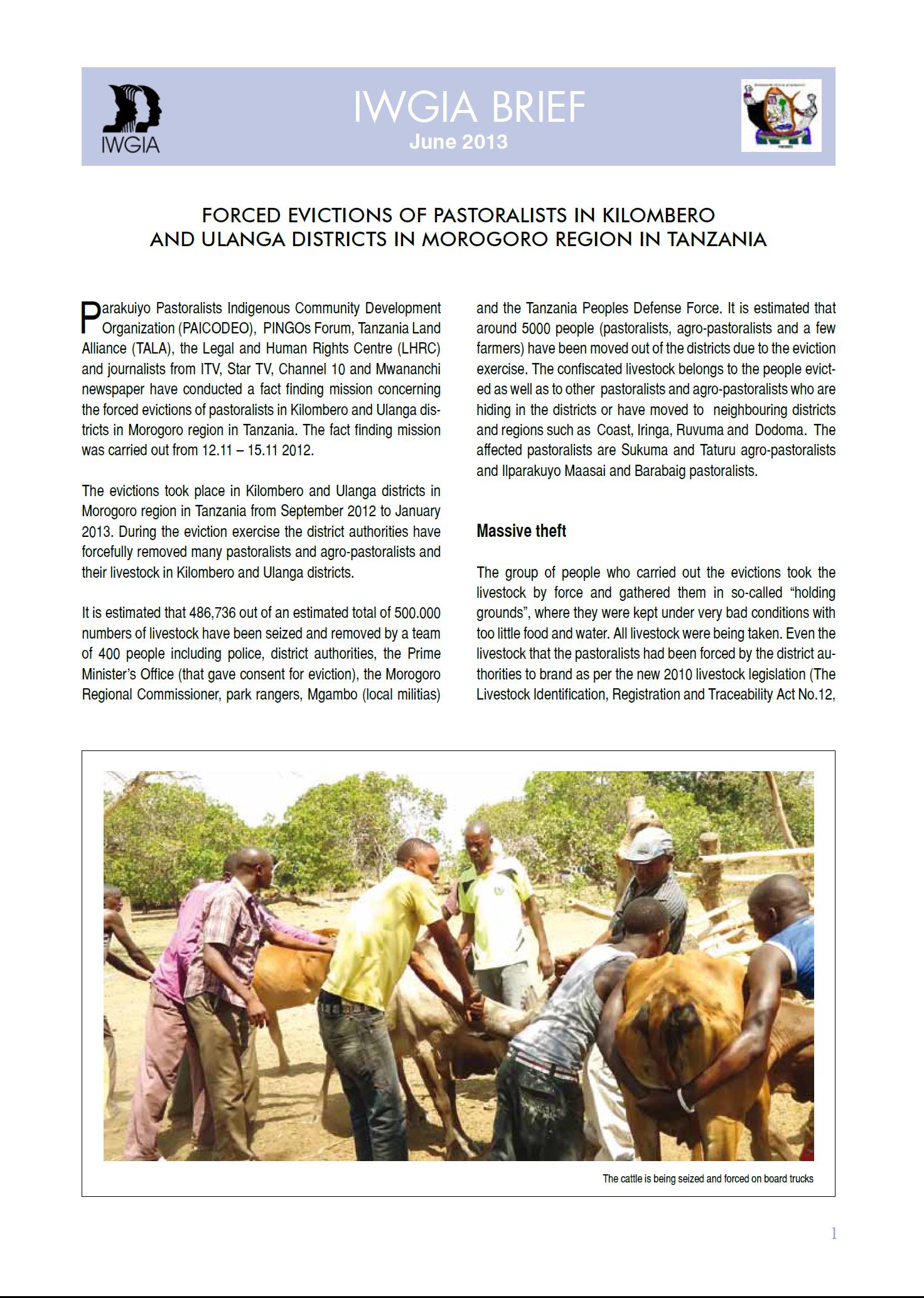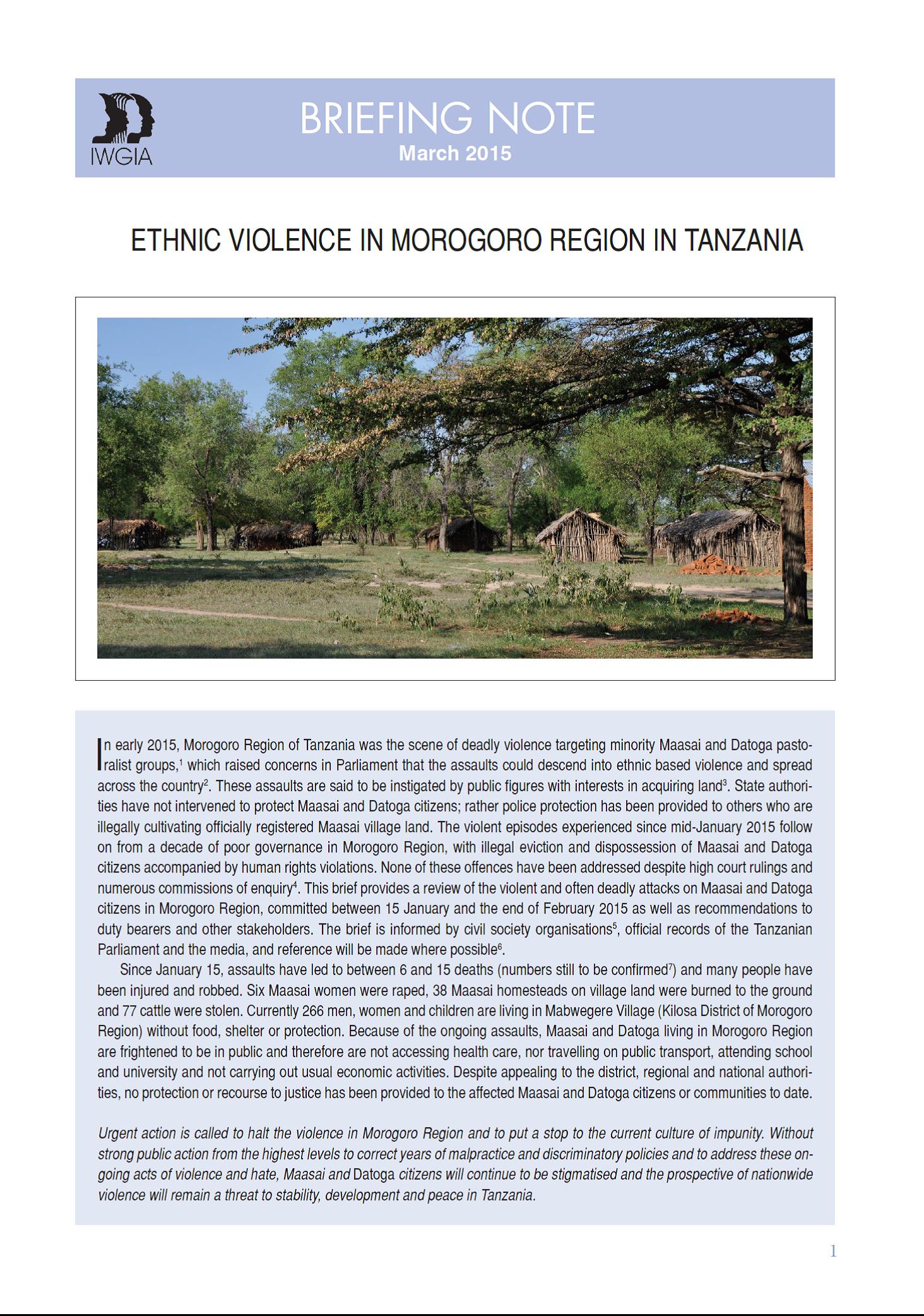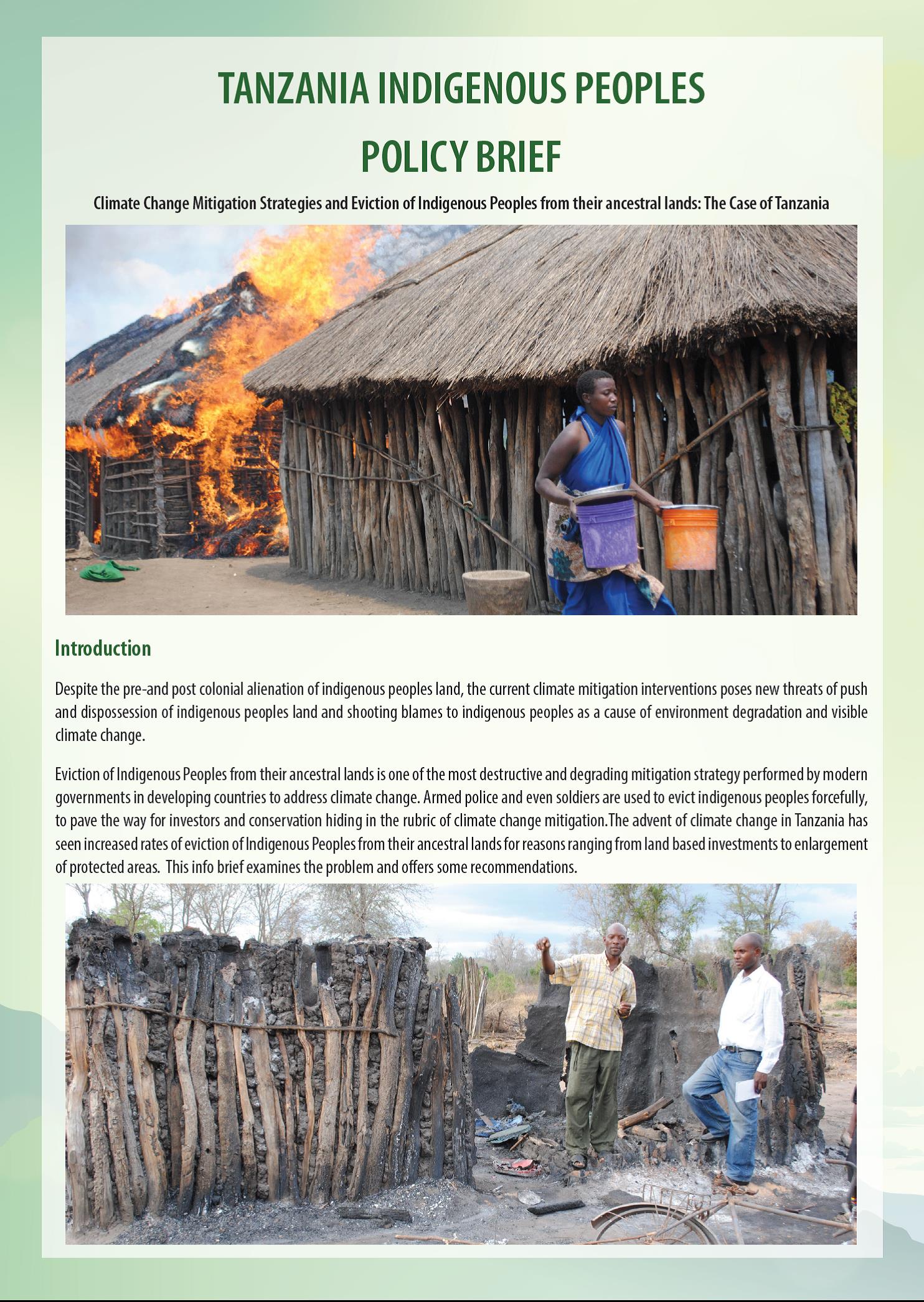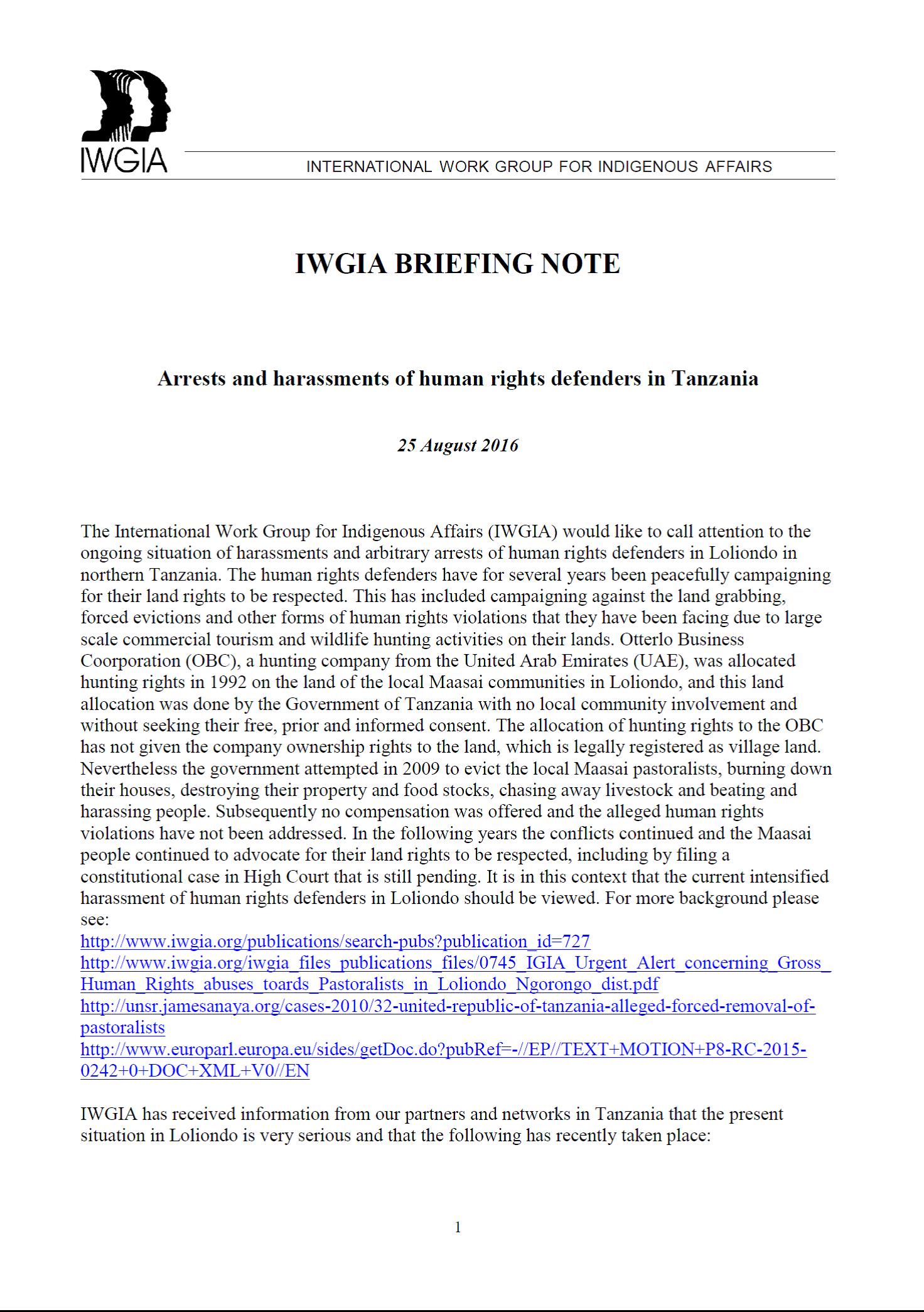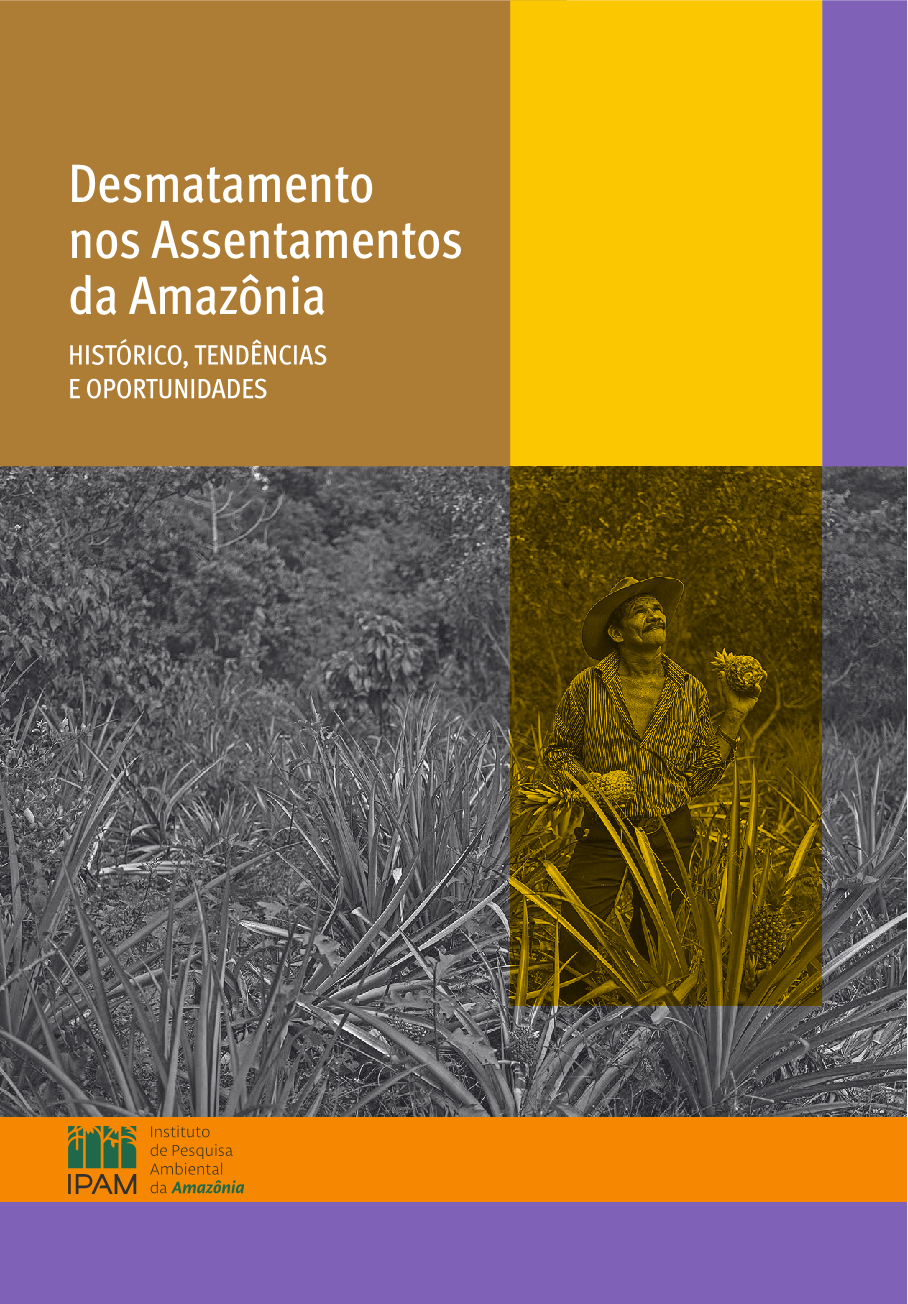Conservation and Citizenship: Democratizing Natural Resource Governance in Africa
Rights-based conservation depends on institutions that give citizens clear and enforceable rights to manage lands and natural resources. Such rights hinge on citizens’ abilities to strengthen and defend their rights and on the operation of the rule of law and impersonal forms of government for legal reforms to take place and have meaning.

